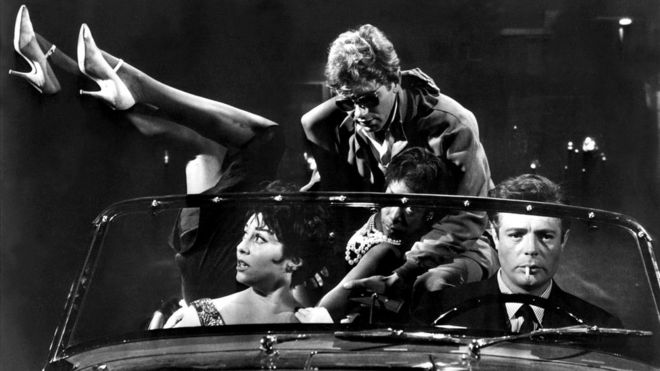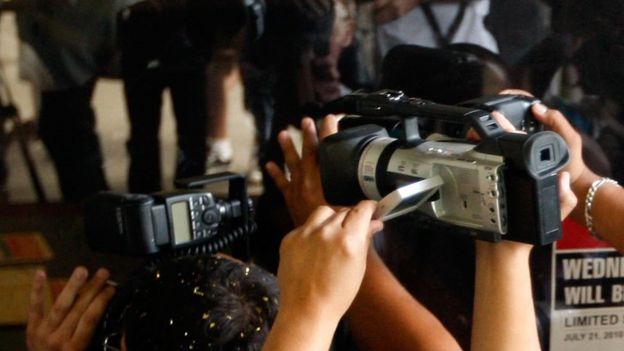
The week has seen reports that Israeli officials tried to close part of the country's airspace to stop paparazzi intruding on a celebrity wedding. But why did film-maker Federico Fellini choose Paparazzo as a name for a pushy photographer?
In Fellini's 1960 film La Dolce Vita the character Paparazzo is fearless and determined in the hunt for a lucrative shot. Yet he comes over as a rather lovable hooligan - not nearly as fearsome as some of the snappers whose brawls with stars and playboys in Rome's Via Veneto helped inspire the film.
In his autobiography, Fellini said the name was from an opera libretto and "sounded just right" when he was told about it. Elsewhere he said the name sounded "like a buzzing insect, hovering, darting, stinging".
Time magazine helped launch the word (especially the plural, paparazzi) in English in 1961, in a feature calling them "a ravenous wolf pack".
Fellini's co-writer tells a different story about the origin of the name, one that is much easier to verify. Ennio Flaiano wrote that he and Fellini found the name by "opening at random George Gissing's wonderful little book By the Ionian Sea".
 Getty Images
Getty Images
An Italian translation of that book had been published in 1957. Wakefield-born Gissing was a writer whose life has been called "hectic and troubled" and whose novels George Orwell called "a protest against the form of self-torture that goes by the name of respectability".
Late in 1897 Gissing, after a trip plagued by bad weather and illness, was relieved to reach Catanzaro in Calabria, which he said was "extraordinary… with precipices on each side".
At first he thought his hotel "cold and sunless" but described it more light-heartedly in By the Ionian Sea, published in 1901. He was particularly taken by the notice in his room entreating guests not to eat anywhere but in the hotel restaurant so as not to hurt the feelings ("toccare il morale") of the proprietor, who signed himself Coriolano Paparazzo.
Signor Paparazzo died in 1899, long before he could know of the notoriety attaching to his name.
His surname is still common in Catanzaro, as its phonebook testifies. The Papa- at the start sounds Greek, and indeed Greek linguistic influence is strong in southern Italy.
Fellini could hardly mistake Gissing's work for an opera - maybe hearing the name suggested a combination of Papageno and Sarastro from the Magic Flute to him.



No comments:
Post a Comment